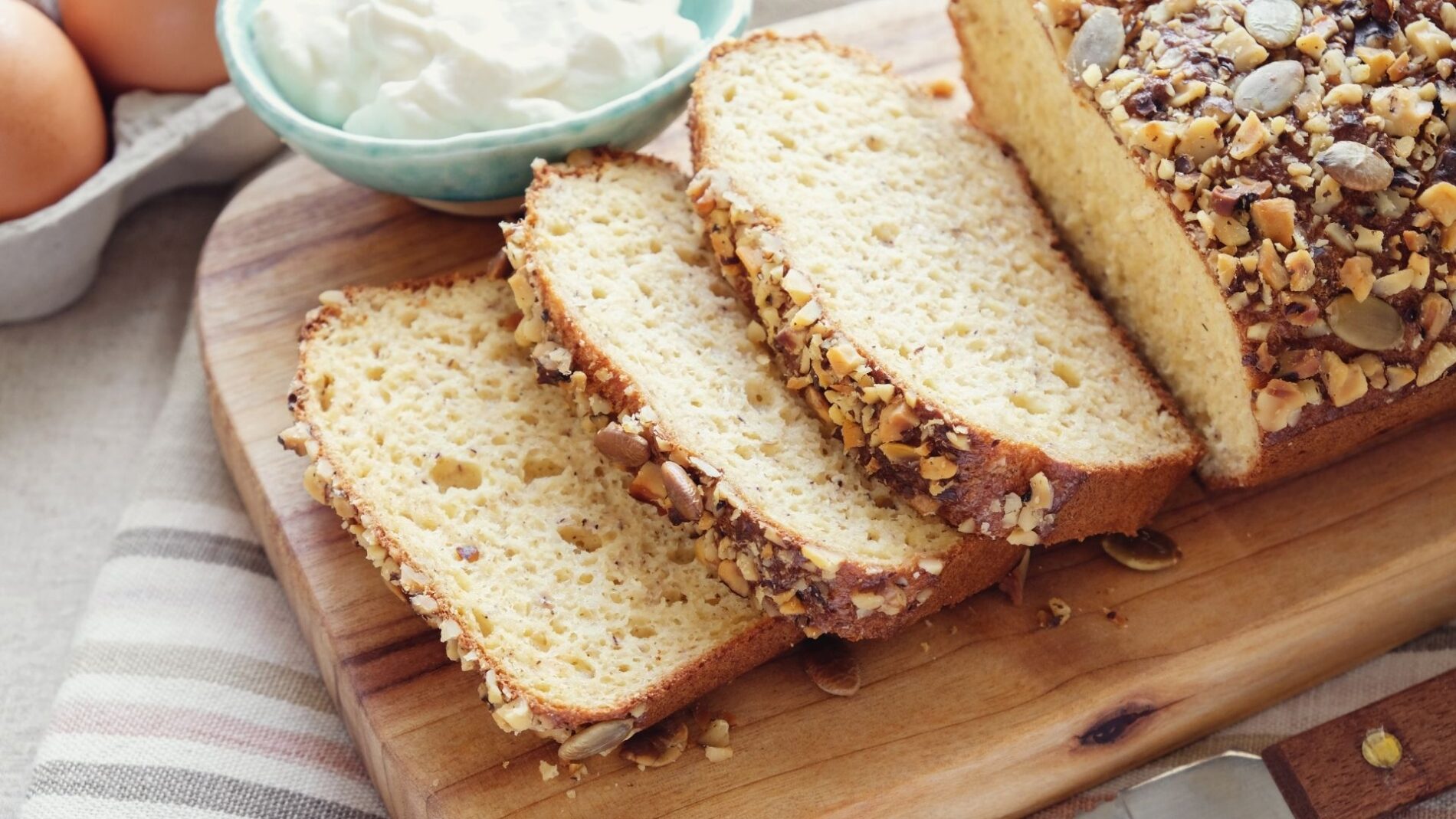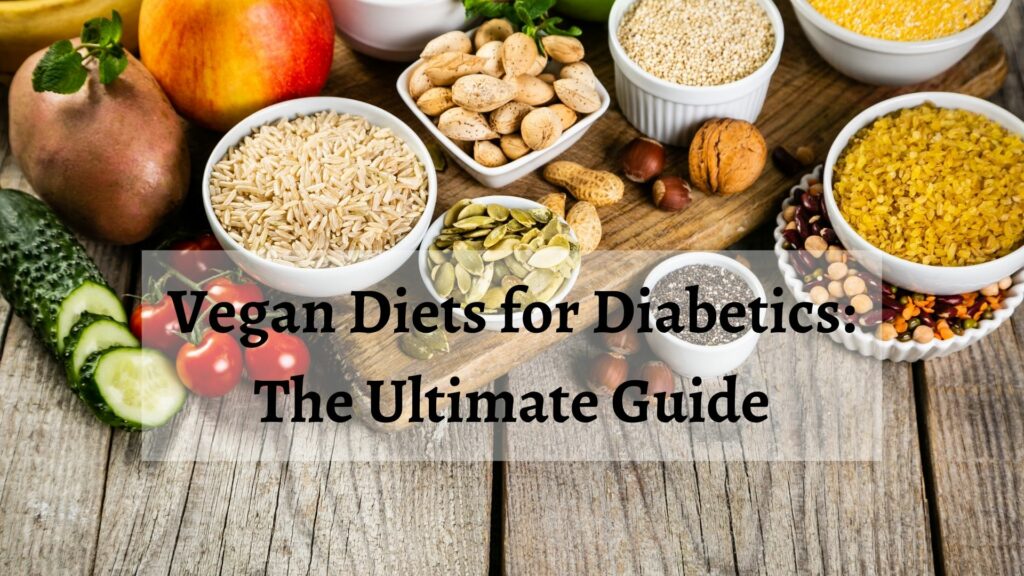Diabetes is one of the most common diseases in the world. More than 30 million people are living with diabetes, and many more are at risk for developing it. If you have diabetes, vegan diets may be a good option for you because vegan diets allow both diabetics and non-diabetics to eat healthy foods that will keep them full while still maintaining low sugar levels. This article will provide information on vegan diets for diabetics, including tips for following a vegan diet, how they can help manage blood sugar levels, how to get enough protein without meat or dairy products (which contain higher amounts of saturated fats), and much more!
Contents
What Is A Vegan Diet?
A vegan diet is a way of eating that excludes all animal products so whether you’re vegan. A vegetarian or just want to go meat-free for a while this guide will help increase your knowledge.
vegan diets contain zero meat and dairy which means no steak, chicken, turkey, or any other kind of flesh. This might sound difficult but vegan options are readily available in every supermarket. From veggie sausages and burgers to cheese replacements made using nuts such as cashews and almonds. Along with plant milk alternatives like oat milk. It can be even easier than you think!
In addition, vegan diets exclude fish too which may seem impossible considering the amount consumed by vegetarians. Fish cannot replace red meats in terms of nutrients and vegan diets. Ensure you’re getting everything you need from other sources.
One of the best vegan options for diabetics is a plant-based diet. This excludes all animal products such as meat, fish, and dairy too. This allows your body to function at its optimum level by keeping blood glucose levels stable due to plenty of fruit and vegetables. It’s also extremely low in saturated fat so it benefits heart health, weight control and can lower cholesterol. Recent studies have shown that vegan diets even reduce risk factors associated with cancer!
If this seems like an extreme option or if vegan isn’t something for you then there are still ways to improve your diabetes management by making small changes to your current way of eating.
Vegan Diets for Diabetics

The vegan diets for diabetics work by managing glucose levels in the body.
By eating a vegan diet, you can control blood sugar and insulin resistance. It also tends to decrease cholesterol numbers which are beneficial when fighting issues related to heart disease or stroke risks. A vegan diet is rich in nutrients that are thought to help prevent inflammation, thus decreasing swelling throughout the body including your pancreas which reduces complications of type II diabetes.
So many health benefits stem from simply changing what you eat! There’s no need to completely overhaul your lifestyle unless it feels right for you but if changes like these seem too challenging then step away from them until they become more manageable steps. No one should expect themselves to be perfect all at once.
Meat, dairy, and animal-based products are completely absent from the vegan diet. Although it may be a nutritious diet. It necessitates careful planning to ensure that you are getting all of your nutritional requirements.
Following a vegan diet will need more preparation for those with diabetes.
In general, diabetics should maintain a constant carbohydrate intake throughout the day to maintain blood sugar levels stable, as carbohydrates have a greater impact on blood sugar levels than protein and fat.
Carbohydrates, protein, and good fat should be complemented with meals and snacks to enhance their glycemic potential. Noncarb dishes may help minimize the effects of carbohydrates on blood sugar.
This can all be accomplished by eating only plant-based meals, although it might be tough if you’re just starting on the vegan diet.
Vegan snacks Examples
Here are some examples of carbohydrates, proteins, and fats that you may use to create meals and snacks if you’re on vegan diets for diabetics:
- The primary sources of carbohydrates are whole grain flour (bread, pasta), rice, potatoes, oats, grits, quinoa, fruit (fresh, frozen, or unsweetened canned), and corn.
- Soybeans and soybean-based foods (tofu, tempeh), beans, lentils, peas, peanuts, tree nuts, nut butter, seeds, plant-based meat replacements
- Fats: olive oil, avocado oil, avocado, nuts and seeds, coconut, plant-based spreads
Fortunately, many plant-based foods, such as beans and grains, include a mix of carbohydrates, protein, and fat, allowing them to serve double or treble duty in your meal preparation.
Most plant-based foods, on the other hand, include fiber, which is a form of indigestible carbohydrate. Fiber helps to make these meals more filling and may also assist to minimize blood sugar levels.
Your healthcare professional — including a registered dietitian nutritionist (RDN) — can help you figure out the right amount of carbohydrates for each meal depending on the kind of diabetes you have, your physical activity level, your age, sex, and several other factors.
Potential Benefits
Improved blood sugar management, insulin sensitivity, and weight loss are just a few of the potential, research-backed advantages of adopting vegan diets for diabetics.
Blood Sugar Management
A 12-week trial of 93 Korean persons with diabetes compared the effects of a low glycemic vegan diet to a mainstream one. Researchers discovered that adopting a vegan diet improved blood sugar control more than eating according to dietary recommendations.
Diets that emphasized plant-based meals, such as veganism, vegetarianism, the Mediterranean diet, and the Dietary Approaches to Stop Hypertension (DASH) diet, were found to lower hemoglobin A1C by 0.8 percent.
The hemoglobin A1C test measures blood sugar control over the previous three months and is a good predictor of long-term blood sugar management.
However, these results aren’t unique to vegan diets. There may be several other diet styles that can assist with blood sugar control. Low-carb and Mediterranean-style diets have more evidence to support their use for diabetes management than most other diets.
Insulin Sensitivity
Insulin is a hormone that aids in the maintenance of normal blood sugar levels.
Increasing insulin sensitivity can help reduce blood sugar and insulin levels, as well as the need for insulin injections, among certain individuals with diabetes who have type 2 diabetes.
The homeostasis model assessment index for insulin resistance (HOMA-IR) is one method researchers use to assess insulin resistance.
In a study of overweight people, researchers discovered that those who switched to a low-fat vegan diet had greater HOMA-IR reductions than those on their usual diet, suggesting they became more insulin-responsive.
In a similar trial of 75 overweight individuals, a vegan diet significantly reduced HOMA-IR, as well as body weight and fat mass, when compared to a control diet.
Animal proteins, according to scientists, maybe more significant in the development of insulin resistance than plant proteins. Overall dietary quality, though, is considered to be a bigger influence than animal protein consumption or avoidance.
Weight Management

Finally, a vegan diet might be advantageous for those with type 2 diabetes by assisting them in controlling their weight.
Losing weight may help improve insulin sensitivity, and vegan diets are typically lower in fat and calories than omnivorous meals, making it simpler to shed weight.
Researchers also observed that the vegan diet resulted in more body fat and weight loss, in addition to the insulin resistance gains seen in the studies above.
Researchers discovered that people who followed a vegan diet shed more weight than those on other less restrictive plant-based diets such as vegetarian, pescatarian, and semi-vegetarian diets in a 6-month study of 63 overweight individuals.
Potential Downsides
There are several drawbacks to the vegan diet in general, and particularly for individuals with diabetes. Fortunately, these dangers can be reduced or even completely avoided by following a few guidelines.
Nutrient Deficiencies
Vegan diets are linked to a greater risk of particular nutrient inadequacies, particularly vitamin B12, vitamin B6, niacin, iron, calcium, omega-3 fats, iodine, and zinc shortages that are more likely to occur in animal sources.
However, you may obtain all of these nutrients by ingesting either supplements or meals that are high in plant-based nutrients.
Here are some examples of vegan food sources for these vitamins:
- Vitamin B12: fortified nutritional yeast, fortified cereals, tempeh
- Vitamin B6: chickpeas, potatoes, bananas, fortified cereals
- Iron: fortified cereals, white beans, dark chocolate, lentils, spinach, tofu
- Calcium: fortified orange juice, tofu, fortified cereals, turnip greens, kale
- Omega-3 fats: chia seeds, flaxseeds, canola oil, soybean oil, edamame
- Iodine: seaweed, iodized salt, soy milk, almond milk
- Zinc: fortified cereal, pumpkin seeds, cashews, chickpeas, almonds, kidney beans
Inadequate Protein
It might be tough for those on vegan regimens to get enough protein and the appropriate mix of amino acids (the fundamental building blocks of protein) to maintain good health.
Protein is required for the growth of new bodily tissues, and amino acids have a wide range of functions in your health.
Even if you’re not a vegan, it’s still possible to address this issue. Protein sources that are particularly excellent for vegans include:
- Soy: tofu, tempeh, soy nuts, black soybeans, soy milk
- Legumes: chickpeas, black beans, kidney beans, peanuts, peanut butter, lentils, peas
- Nuts: almonds, hazelnuts, macadamia nuts, nut butter, nut milk
- Seeds: chia seeds, flaxseeds, sunflower seeds, pumpkin seeds, sunflower butter
- Grains: quinoa, oats, teff, amaranth
- Protein powders: pea protein, soy protein
The majority of vegan protein sources, on the other hand, are regarded as incomplete, which means they don’t include all of the essential amino acids in adequate proportions.
Mix and match your protein sources to be sure you’re getting all of the amino acids you need each day. Get your protein from a variety of plant-based foods each day.
Excessive Carbs

Another danger of vegan diets for diabetics, in particular, is that it’s easy to eat too many carbohydrates, which can affect blood sugar levels.
A vegan diet is typically higher in carbs than an animal-based diet since plant-based diets generally have a greater carb content. It’s possible to eat too many carbohydrates if you consume a lot of overly processed vegan meals.
Carbohydrates in general aren’t harmful, and they can be a healthy component of a healthy diabetes diet. However, to keep good blood sugar levels, it’s crucial to limit your intake.
The amount of carbohydrates you need depends on a variety of factors, including your age and health. Talk to your doctor or healthcare provider about the best quantity of carbs for you.
Tips for Success
Do you want to succeed at vegan diets for diabetics? Here are some pointers to get you started and keep you on track:
- Plan ahead of time. Planning your meals and having some nutritious snacks on hand can help you succeed. When dining out, double-check the menu beforehand.
- Fill up on non-starchy veggies. Nonstarchy vegetables are high in fiber and nutrients but low in carbohydrates. They’ll have a minor impact on your blood sugar levels while still keeping you full and content.
- Adjust the calorie intake. To ensure that each meal and snack contains a balanced mix of carbohydrates, fats, and protein, as well as some nonstarchy vegetables if feasible, adjust the calorie consumption accordingly.
- You can expect to lose 50 pounds in the first 1.5 years after you stop consuming dairy products, which would make up for your diet’s calorie deficit. If you’re not losing weight at a rate that matches your total calorie intake (i.e., if there is a calorie deficit), supplementing will aid in weight loss. Vegan diets can be low in certain nutrients, so supplementation is typically required. Have your doctor order a blood test to see if you’re lacking in nutrients like iron, B12, and vitamin D to determine which supplements are appropriate for you.
- Use a variety of plant-based proteins. To guarantee that you’re receiving all essential amino acids in the quantities required for optimal health, eat a mix of different plant-based protein sources.
- Check your blood sugar levels regularly. If you have diabetes and are not following a vegan diet, you should check your blood sugar levels regularly to detect any unusual patterns and notify a healthcare professional if you see any concerning trends.
Pitfalls to Avoid
Also, here are some hazards to avoid while adhering to a vegan diet for diabetes.
Excessive Processed Food Intake
Highly processed meals, including vegan alternatives, are frequently packed with sugar and preservatives and are low in dietary fiber and protein. The same may be said for beverages like soda and fruit juices.
Although you don’t have to avoid these foods entirely, if you have diabetes and are having difficulties controlling it, you should limit them.
Excesses of ultra-processed food have been in association with weight gain and an increased risk of diabetes, high blood pressure, and some types of cancer.
Low Fat and Low Protein Meals
On the same note, you should attempt to avoid meals or snacks that are mostly carb and low in protein or fat.
Protein may assist reduce carbohydrates’ impact on blood sugar levels and improve feelings of fullness.
Furthermore, olive oil may provide several additional health advantages including improved heart health and the enhanced absorption of certain nutrients.
What to Eat for Vegan Diets for Diabetics

Now that you’re eating vegan to help control your blood sugar levels, remember to consume foods that are high in fiber and protein—two nutrients that work together to keep blood sugar levels stable. Plus, choose unprocessed vegan meals like beans or lentils instead of processed vegan protein patties or other imitation meat products that may be high in salt.
- Beans
- Lentils
- Nuts and seeds
- Natural nut or seed butter (peanut butter, sunflower seed butter, etc.)
- Fresh or frozen fruits and vegetables, without sugar, added
- Leafy greens, spinach, kale, and chard
- Cruciferous vegetables, like Brussels sprouts, broccoli, and cauliflower
- Berries
- Apples
- Pears
- Avocado
- Oatmeal
- Whole-wheat pasta
- Quinoa
- Olive oil
- Edamame
- Tofu
- Tempeh
- Seitan
How are Vegan Diets Different for Diabetics?
A vegan diet is approached differently based on the type of diabetes you have.
Your dietitian and healthcare team will consider the sort of diabetes you have been diagnosed with. They may help you follow a vegetarian diet while keeping your blood sugar levels stable.
Some considerations for each type of diabetes include:
Type 1 Diabetes
Type 1 diabetes is caused by a deficiency of insulin. Insulin treatment is required, and the amount needed may decrease suddenly after starting a diet. As a result, monitoring blood sugar levels while making a dietary change is critical. Children and teens with diabetes who follow a vegetarian diet should be on track to ensure they have enough calories to fuel growth and development.
Type 2 Diabetes
A vegetarian diet can assist people with type 2 diabetes drop weight, and some of them may have set a goal to do so. When people change their eating habits and lose weight, their drug dosages may lower, and it’s critical to maintain a close eye on blood sugar levels in order to do so.
Gestational Diabetes
When eating a vegetarian diet, pregnant women with diabetes should work closely with their dietitians. This will help guarantee that enough protein, calories, and other nutrients are ingested for the baby’s growth. It will also help in development as well as good overall health for the mother. Pregnant women who choose to follow a vegetarian diet for religious or other reasons may need to take supplements that provide necessary nutrients such as iron, calcium, and B12.
Prediabetes
Vegans that have prediabetes may benefit from weight loss and improved blood sugar control. Which can help to prevent pre-diabetes from developing into type 2 diabetes. It’s critical to work with a dietitian to establish a carbohydrate goal for each meal and snack. So you get a nutritious vegetarian diet with adequate carbohydrates.
Conclusion
A vegan diet has several advantages for people with diabetes, including better blood sugar control and a decreased risk of serious health problems. Getting the nutrients your body requires and selecting meals that are appropriate for your personal diabetes management plan are essential to a healthy vegetarian diet. As a result, working with a Registered Dietitian Nutritionist before making dietary adjustments is critical.
It can be a healthy option for people with diabetes. However, if you have type 1 or type 2 diabetes and are considering going vegan. Consult your doctor first to make sure this is the best choice for you. Discuss any potential risks of adopting such a restrictive diet. The following tips may help lower your risk of developing complications from diabetes: eat plenty of whole grains, vegetables, beans, fruit; exercise regularly. Monitor blood sugar levels often by checking glucose at home or testing after eating certain foods/drinks that affect it most (e.g., high-carbohydrate food); take medications as prescribed by your physician; don’t smoke cigarettes or drink alcohol excessively.
Do you want to get rid of diabetes? Join our online diabetes consultation program and reverse your Diabetes naturally through lifestyle changes such as a Personalized Diet plan, Exercise, dieticians, and health coaches.


